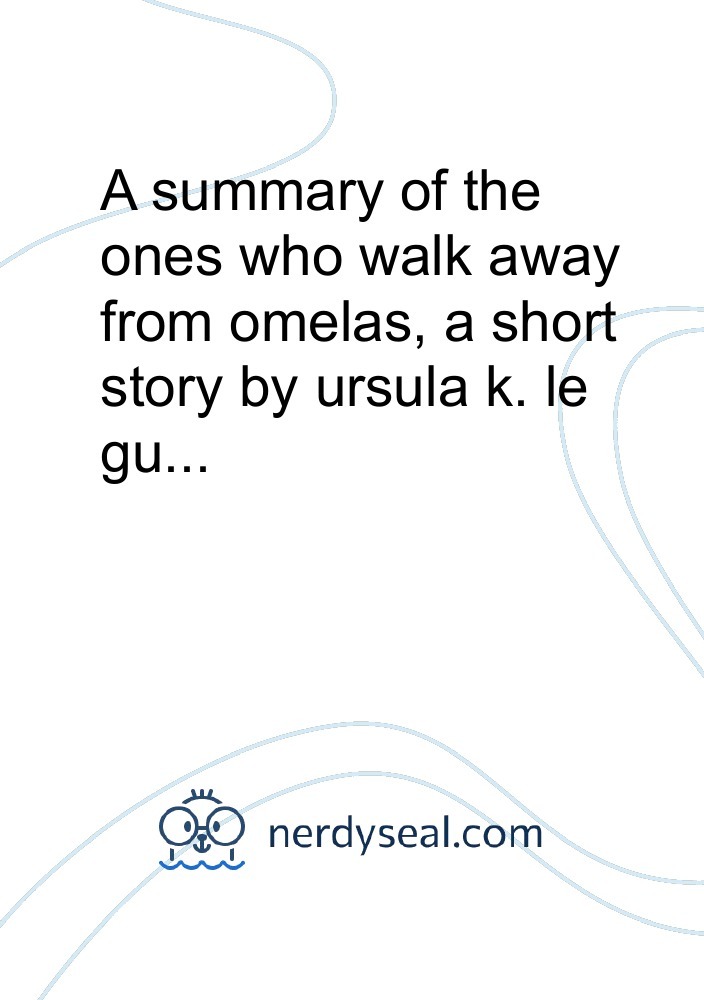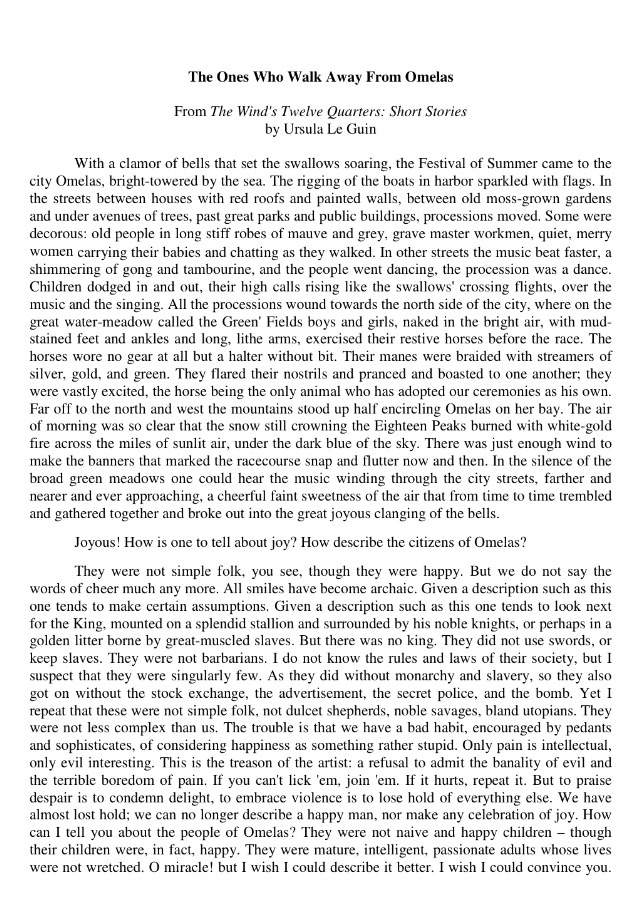

The fact is, I haven't been able to re-read Dostoyevsky, much as I loved him, since I was twenty-five, and I'd simply forgotten he used the idea. "The central idea of this psychomyth, the scapegoat", writes Le Guin, "turns up in Dostoyevsky's Brothers Karamazov, and several people have asked me, rather suspiciously, why I gave the credit to William James. Le Guin?' From forgetting Dostoyevsky and reading road signs backwards, naturally. Le Guin hit upon the name of the town on seeing a road sign for Salem, Oregon, in a car mirror. Le Guin stated that the city's name is pronounced " OH-meh-lahss". But they seem to know where they are going, the ones who walk away from Omelas." The story ends with "The place they go towards is a place even less imaginable to most of us than the city of happiness.

Each is alone, and no one knows where they go, but none come back. However, some citizens, young and old, walk away from the city after seeing the child. Once citizens are old enough to know the truth, most, though initially shocked and disgusted, ultimately acquiesce to this one injustice that secures the happiness of the rest of the city. The city's constant state of serenity and splendor requires that a single unfortunate child be kept in perpetual filth, darkness, and misery. Perhaps it would be best if you imagined it as your own fancy bids, assuming it will rise to the occasion, for certainly I cannot suit you all." Everything about Omelas is so abundantly pleasing that the narrator decides the reader is not yet truly convinced of its existence and so elaborates upon the final element of the city: its one atrocity. The narrator reflects that "Omelas sounds in my words like a city in a fairy tale, long ago and far away, once upon a time. The specific socio-politico-economic setup of the community is not mentioned the narrator merely claims not to be sure of every particular. Omelas has no kings, soldiers, priests, or slaves. The vibrant festival atmosphere, however, seems to be an everyday characteristic of the blissful community, whose citizens, though limited in their technology and resources, are still intelligent, sophisticated, and cultured. In Omelas, the summer solstice is celebrated with a glorious festival and a race featuring young people on horseback. The only chronological element of the work is that it begins by describing the first day of summer in Omelas, a shimmering city of unbelievable happiness and delight. "The Ones Who Walk Away from Omelas" was nominated for the Locus Award for Best Short Fiction in 1974 and won the Hugo Award for Best Short Story in 1974. With deliberately both vague and vivid descriptions, the narrator depicts a summer festival in the utopian city of Omelas, whose prosperity depends on the perpetual misery of a single child.

" The Ones Who Walk Away from Omelas" / ˈ oʊ m ə ˌ l ɑː s/ is a 1973 work of short philosophical fiction by American writer Ursula K.



 0 kommentar(er)
0 kommentar(er)
